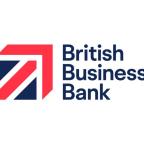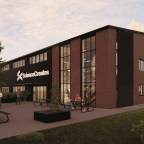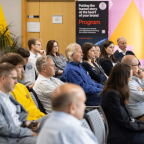
Martin Barnes: What can horse racing teach us about pitching to investors?
Martin Barnes is a professional pitch coach specialising in supporting startups. To date, startups he has worked with have raised £1,075,000.00 - and counting...
What can horse racing teach us about pitching to investors?
"It's a great deck, Martin, but I would never invest", said Ian, a very successful investor friend in 2015.
"Why?" I asked
"Because you are not fully committed", he said.
Busted - Ian was 100% right.
The deck was an idea I'd had, developed into a pitch and used to enter a weekend-long accelerator.
Think The Apprentice turns into Dragon's Den.
On Friday night, I pitched an idea, 2 minutes, no slides and was selected as six out of 45 aspiring founders to have our ideas developed and ready for a pitch to investors on Sunday night.
Ian's observation was further validated three years ago in 2020, when I read a research report from The MIT Sloane Management School.
"A Study on the Art and Science of Pitching a New Business." By Alexander Williams.
Williams's conclusion from his research was: it's all about horse racing.
Let me break it down.
Some investors tune in and are motivated by the jockey story - the story of the founding team.
Some seek out the story of the racehorse - the product.
Others the story of the race course - the market.
And everyone cares about the odds - the numbers story.
I love this analogy because it makes it simple to assess a founder's pitch and see how to improve it.
When I shared my pitch, my investor friend Ian could see that there was a no-jockey story.
There was zero jockey passion to take the idea to success. This was a big red flag for him; if I wasn't chomping at the bit to make this happen, why would he even think about risking his money?
I recall how Ian explained that for him, the tech can change, the market can change, and the world can change, so he looks to the founder and founding team. Can they stay the course and make it happen against the ups and downs of building a business?
Of course, there are investors who tune into the market story and have a perspective that the founder can be replaced.
This makes aligning with investors who share your vision and values of success even more critical.
This is why you need a great pitch.
You are not for everyone, and thats ok - the expression "horses for courses" becomes even more relevant in this context.
So how can you start benefiting from this horse racing insight?
Two ways:
01 - Revisit the latest iteration of your pitch and assess each slide.
How much of your jockey/founder story are you sharing?
How much are you pitching your horse story?
How detailed are you talking about your race course - the potential market?
And how are you sharing the odds - the logic and insights you have toward the risk and reward?
Chances are your pitch is heavy in one of these areas.
And if I were a betting man, I'd bet you are overpitching the racehorse.
Massively over-explaining your product - and this is normal because you built it.
But the thing is, investors are professional pitch listeners who sit through thousands of pitches every year. They can see the potential in an idea very quickly, so keep the horse part of your pitch lite and agile.
Over-explaining is the quickest way to turn people off.
A benefit of keeping your horse/product story lite is that if they are interested, they will ask questions, which is a clear sign that this moment has potential.
02 - Start assessing every pitch you hear.
The next pitch event you join, listen to the other pitchers and tag each slide with a
J
H
C
O
Watch pitches on YouTube, get Airbnb and UBERs deck and see how they did it.
Caution, those are 15 years old now, so the markets are very different, don't copy them slide by slide; instead, use this exercise to get faster at seeing what people are pitching.
Thinking about your pitch through the horse racing analogy gives you one BIG advantage.
You can become more flexible in customing your pitch to the people in front of you.
You will know which parts of your pitch to share with which audiences.
As you research investors, you can build a profile of them.
Define and understand what their preferences are.
As you see what they share on LinkedIn, Twitter, their website about page, podcasts, books, and their investment thesis.
When you know what aspects of the horse racing analogy they lean into, you can curate your story to match their interests.
This way, you'll have more of the right conversations.
You'll have a pitch style that effortlessly mirrors your audience.
And you'll spend less time adjusting the content to fit the audience - and more time building your business and expanding your network.
This means you will take a different pitch to every opportunity and be the founder who seems to read the minds of the investors in the room.
The alternative is to bring the same bloated deck to every event and waste time and effort making the wrong impression.
This agile approach to pitching with a flexible mindset and focus on investor alignment is critical more than ever as the South West welcomes a £200M government grant and new community hubs like the Somerset Digital Innovation Centre and FibreHUB in Cornwall.
As the regional dots connect and we get back into the room with people, opportunities are abundant - and they flourish when you have the right pitch.
To successfully cross the finish line, be super aware of what story you are pitching:
Your jockey story.
Your horse story.
Your course story.
And your odds story and align these to the right people.
Happy racing.
My name is Martin, and I help founders pitch the right stories at the right time.
My company is called 8 Seconds 2 Connect because this is how much attention you get before people start thinking about checking their phones.
This means you must be quick, smart and memorable when pitching.
I can help you like I've helped veteran CEOs develop their C-Round raise deck for their 4th startup.
Founders prepare for Silicon Gorge, Digital Catapult and the South West Startup Studio.
A First-time founder raise £1M, and the head of HR at Mercedes China pitch new hiring packages to 2000 colleagues.
I have 23 years of experience and spent 16 years in Beijing.
I'm now loving living back in the South West, and I would like to help you ace your next pitch - check out my first book, The Pitching AZ, and when you're preparing for your next important pitch, let's talk.







